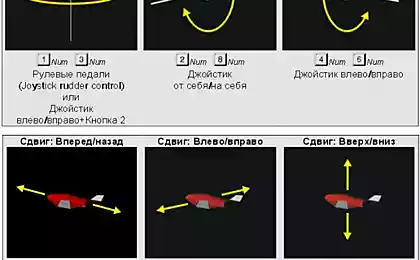501
Baby tantrums: WHAT to DO
Unfortunately, sooner or later, most parents face such phenomenon, as children's hysterical. The child cries out, falls to the ground, beating his head on the floor, not responding to requests and words of an adult. Parents are at a loss on what happened to the baby? How to behave to a nightmare quickly ended? What will people say?

Some children tantrums period passes quickly, others can take years. A lot depends on the parents ' behavior. Let's understand what it is.
The first thing you should know about tantrums is that the tantrums and whims are different, although very similar. Tantrums are normal characteristic of children up to 3 years. Then they pass, giving way to whims.
To the whims of a child intentionally uses to achieve its goals. Ie, a kid can see the target (desired) and whoever will produce the desired (parent). The moods as well as tantrums, often accompanied by crying, shouting, stamping feet, throwing things.
Tantrums usually involuntary. The child is unable to cope with emotions (arousal). No wonder they say "went into hysterics". Childish tantrum accompanied by loud crying, screaming, banging his head on the floor, beating his fists on the surface, face scratching. In severe cases there may be involuntary spasms, so-called "hysterical bridge" when the child blows out the arc. Childish tantrum is a strong emotional reaction, backed by the irritation, aggression, despair. During a tantrum the child is weak control over its motor skills, so it can beat my head against the floor or wall, almost feeling no pain.
According to scientists, about 90% of parents faced with tantrums in children from one to three years. Most tantrums start in the first half of the year. The peak considered to be 2.5–3 years, the so-called period of "crisis" three years. In the crisis period, tantrums can happen several times a day. In four years, this behavior is considered to be rare, the child is able to Express their feelings and emotions in words.
There are some rules that will help You to live, and sometimes to prevent those difficult moments:
1.The adherence of the day.A rule as old as the world, but few who observe it may at the same time because of its simplicity or complexity of the organization. Why is it so important the mode of the day? Baby's nervous system is still insufficiently developed, and the child can't control himself. But when it is mixed with fatigue, the process of excitation, the center of which is located in the brain cannot be stopped by any external factors, it only intensifies. Remember when you are tired. Annoyed? I want to scream at someone? Stomp your feet? Hysteria is the same, only childish. Fatigue, hunger, overstimulation provocateurs tantrums.
2. The second rule follows from the first. It is an organization of child's leisure. The likelihood of tantrums is enhanced if the child is bored, not interested (for example, when a mother and her child do the shopping — it is interesting only to mom). When the child for a long time engaged in one activity (e.g., long runs, or, conversely, sitting without movement). During the day the child needs to offer different types of activities, alternating quiet and active games. Fresh air is a must!
3.Often advised to divert the child's attention, if you notice the precursors of hysteria. A good option, but not a panacea. You may just postpone a tantrum at the time. And in fact this way is our tip number 2: change of activity. And this method no longer works if the tantrum is in full swing (remember about the excitement that can not be stopped?). Much better to allow the child to rest, "recharge" my mom's gentle hands, quiet gentle voice, attentive, loving gaze. Often take the child in his arms, talk to him. Do it sincerely, with pleasure!
4. There is a common belief that the child is in hysterics need to leave one, shame, or punish. In any case! First, these methods do not work. Secondly, the punishment exacerbates the situation, and leaving alone causes the child to feel abandoned. Pristegivaniem coupled with leaving alone, though, and does not give immediate results, with years of teaching to understand the child, that with it something not so that to be ill, otherwise you throw. In the end, put yourself in the place of the child: you have a tantrum, you need to cry, and someone stands by and shamed or persuaded to stop. During a tantrum a child needs to be patient and to stay around to wait, when will the crying. If you see that the child calms down, starts to hiccup, give him some water, perhaps. He is tired and looks so miserable!
5. What else should I do when the baby tantrum? To be afraid of her. If tantrums are not too frequent, and the parent is not aggressive, such behavior can even be slightly useful. There is an emotional and physical discharge. Much worse when emotions are not expressed and are driven inwards. Remember: if stars are lit, it means that somebody needs it?
6. You also need to know that not all children are equally prone to tantrums. Choleric and melancholic hysterical more and faster, and the phlegmatic and less sanguine. But if the person throwing a tantrum is a long time. These features again depend on the type of the nervous system. It is therefore not equal to other people's children: more, less, more, less... everyone has their own "schedule".
7. Each time the behavior of the parent must be the same: calm waiting for the end of hysteria. So the parent shows that the child is taking any (and this is very important), then you can trust him. And with another — the children often test parents "for strength", i.e. learn to build boundaries. Where and how to behave, where a parent succumb to the onslaught?

8. A child under three years is still in the knowledge of themselves and others, he is just beginning to develop norms of behavior. He wondered what was happening to him. Call what you see: "I see that you're mad because I banned(and) you watch cartoons", "You're tired", "hurt", etc. Is like calling the color of objects. It does not stop the hysteria (you probably already knew that while she will be alive, a useless action from the outside), and maybe the first few times the child won't hear you. But sooner or later he will learn to distinguish between their condition and, therefore, to report them.
9. If you have difficulty restrained from being able to join the child, remember when you last rested. This is important. Every mom has the stamina and strength to accept all that makes the baby (remember sleepless nights when the child was sick: you were with him as much as he needs). If this stock is gone, so somewhere there was a shortage, discharged battery. Another possible reason: your beliefs about yourself, about the baby: "Normal children don't behave like that" or "I'm doing something wrong" or "What will the neighbours say???". Then these ideas begin to lead you, and you lose touch with the real child, who needs to be naughty, crying and accepted. You begin to contact with my idea of the perfect child. And the children, Oh, how do not like!I'll tell you a secret: nobody likes that.
And the last one. If tantrums with age (approximately 4 years) has not stopped, moreover, they are quite intensive and exhausting for the child, there is reason to consult a neurologist. If neurological diagnoses excluded, the following specialist psychologist. It will help you to understand the main issue: that the child reports in a similar way? Is there a different way to build family communication?
In any case, hysteria is a signal about the current state of the baby, which he cannot Express in words. To stay too can not. He does it without malice. Rather, it will be said, "it" happens to him. Transcribe children's message, and then tantrums will be less. It's easy with our recommendations. Needs a little attention and patience. Tantrums do not happen without reasons. Find the cause, get an answer.
And remember! Hysteria — the lot of Child, Adult behaves differently. It is not necessary to change places with the child. Love yourself, your family and friends! published
Author: Margarita Kuznetsova
P. S. And remember, just changing your mind - together we change the world! ©
Source: samopoznanie.ru/articles/detskie_isteriki/

Some children tantrums period passes quickly, others can take years. A lot depends on the parents ' behavior. Let's understand what it is.
The first thing you should know about tantrums is that the tantrums and whims are different, although very similar. Tantrums are normal characteristic of children up to 3 years. Then they pass, giving way to whims.
To the whims of a child intentionally uses to achieve its goals. Ie, a kid can see the target (desired) and whoever will produce the desired (parent). The moods as well as tantrums, often accompanied by crying, shouting, stamping feet, throwing things.
Tantrums usually involuntary. The child is unable to cope with emotions (arousal). No wonder they say "went into hysterics". Childish tantrum accompanied by loud crying, screaming, banging his head on the floor, beating his fists on the surface, face scratching. In severe cases there may be involuntary spasms, so-called "hysterical bridge" when the child blows out the arc. Childish tantrum is a strong emotional reaction, backed by the irritation, aggression, despair. During a tantrum the child is weak control over its motor skills, so it can beat my head against the floor or wall, almost feeling no pain.
According to scientists, about 90% of parents faced with tantrums in children from one to three years. Most tantrums start in the first half of the year. The peak considered to be 2.5–3 years, the so-called period of "crisis" three years. In the crisis period, tantrums can happen several times a day. In four years, this behavior is considered to be rare, the child is able to Express their feelings and emotions in words.
There are some rules that will help You to live, and sometimes to prevent those difficult moments:
1.The adherence of the day.A rule as old as the world, but few who observe it may at the same time because of its simplicity or complexity of the organization. Why is it so important the mode of the day? Baby's nervous system is still insufficiently developed, and the child can't control himself. But when it is mixed with fatigue, the process of excitation, the center of which is located in the brain cannot be stopped by any external factors, it only intensifies. Remember when you are tired. Annoyed? I want to scream at someone? Stomp your feet? Hysteria is the same, only childish. Fatigue, hunger, overstimulation provocateurs tantrums.
2. The second rule follows from the first. It is an organization of child's leisure. The likelihood of tantrums is enhanced if the child is bored, not interested (for example, when a mother and her child do the shopping — it is interesting only to mom). When the child for a long time engaged in one activity (e.g., long runs, or, conversely, sitting without movement). During the day the child needs to offer different types of activities, alternating quiet and active games. Fresh air is a must!
3.Often advised to divert the child's attention, if you notice the precursors of hysteria. A good option, but not a panacea. You may just postpone a tantrum at the time. And in fact this way is our tip number 2: change of activity. And this method no longer works if the tantrum is in full swing (remember about the excitement that can not be stopped?). Much better to allow the child to rest, "recharge" my mom's gentle hands, quiet gentle voice, attentive, loving gaze. Often take the child in his arms, talk to him. Do it sincerely, with pleasure!
4. There is a common belief that the child is in hysterics need to leave one, shame, or punish. In any case! First, these methods do not work. Secondly, the punishment exacerbates the situation, and leaving alone causes the child to feel abandoned. Pristegivaniem coupled with leaving alone, though, and does not give immediate results, with years of teaching to understand the child, that with it something not so that to be ill, otherwise you throw. In the end, put yourself in the place of the child: you have a tantrum, you need to cry, and someone stands by and shamed or persuaded to stop. During a tantrum a child needs to be patient and to stay around to wait, when will the crying. If you see that the child calms down, starts to hiccup, give him some water, perhaps. He is tired and looks so miserable!
5. What else should I do when the baby tantrum? To be afraid of her. If tantrums are not too frequent, and the parent is not aggressive, such behavior can even be slightly useful. There is an emotional and physical discharge. Much worse when emotions are not expressed and are driven inwards. Remember: if stars are lit, it means that somebody needs it?
6. You also need to know that not all children are equally prone to tantrums. Choleric and melancholic hysterical more and faster, and the phlegmatic and less sanguine. But if the person throwing a tantrum is a long time. These features again depend on the type of the nervous system. It is therefore not equal to other people's children: more, less, more, less... everyone has their own "schedule".
7. Each time the behavior of the parent must be the same: calm waiting for the end of hysteria. So the parent shows that the child is taking any (and this is very important), then you can trust him. And with another — the children often test parents "for strength", i.e. learn to build boundaries. Where and how to behave, where a parent succumb to the onslaught?

8. A child under three years is still in the knowledge of themselves and others, he is just beginning to develop norms of behavior. He wondered what was happening to him. Call what you see: "I see that you're mad because I banned(and) you watch cartoons", "You're tired", "hurt", etc. Is like calling the color of objects. It does not stop the hysteria (you probably already knew that while she will be alive, a useless action from the outside), and maybe the first few times the child won't hear you. But sooner or later he will learn to distinguish between their condition and, therefore, to report them.
9. If you have difficulty restrained from being able to join the child, remember when you last rested. This is important. Every mom has the stamina and strength to accept all that makes the baby (remember sleepless nights when the child was sick: you were with him as much as he needs). If this stock is gone, so somewhere there was a shortage, discharged battery. Another possible reason: your beliefs about yourself, about the baby: "Normal children don't behave like that" or "I'm doing something wrong" or "What will the neighbours say???". Then these ideas begin to lead you, and you lose touch with the real child, who needs to be naughty, crying and accepted. You begin to contact with my idea of the perfect child. And the children, Oh, how do not like!I'll tell you a secret: nobody likes that.
And the last one. If tantrums with age (approximately 4 years) has not stopped, moreover, they are quite intensive and exhausting for the child, there is reason to consult a neurologist. If neurological diagnoses excluded, the following specialist psychologist. It will help you to understand the main issue: that the child reports in a similar way? Is there a different way to build family communication?
In any case, hysteria is a signal about the current state of the baby, which he cannot Express in words. To stay too can not. He does it without malice. Rather, it will be said, "it" happens to him. Transcribe children's message, and then tantrums will be less. It's easy with our recommendations. Needs a little attention and patience. Tantrums do not happen without reasons. Find the cause, get an answer.
And remember! Hysteria — the lot of Child, Adult behaves differently. It is not necessary to change places with the child. Love yourself, your family and friends! published
Author: Margarita Kuznetsova
P. S. And remember, just changing your mind - together we change the world! ©
Source: samopoznanie.ru/articles/detskie_isteriki/























